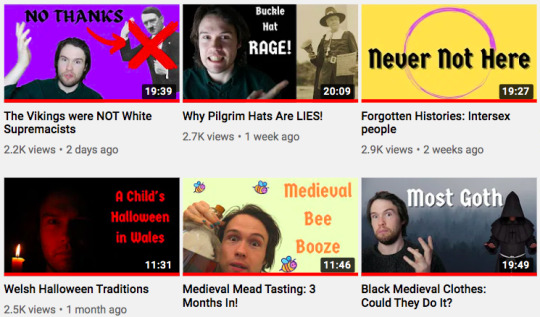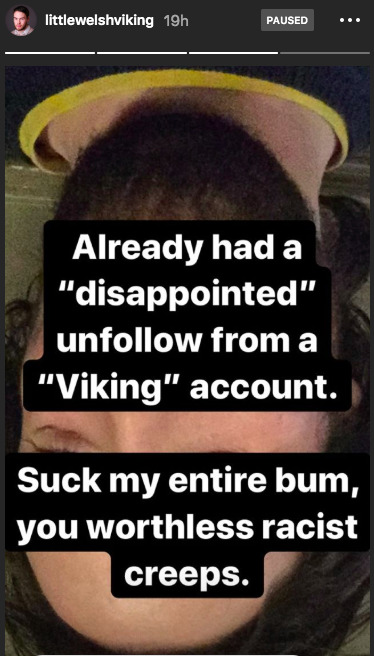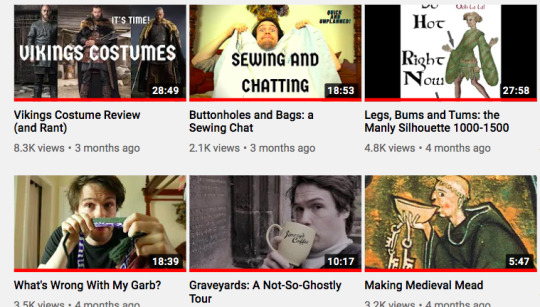#cymry
Explore tagged Tumblr posts
Photo
Nice to see Cymry on tumblr



The Welsh Viking is pretty cool!
132K notes
·
View notes
Text

Dyma Wythnos/ This Week:
Yn Gymraeg: Betty Campbell! Y brifathrawes yng Nghymru! Helpodd hi i wneud Mis Hanes Pobl Dduon yn Y DU, ac addysgodd hi blant am hanes du.
In English: Betty Campbell! The first black headteacher in wales! She helped create Black History Month in the UK, and taught children about black history.
0 notes
Text










Today I’d like to show you my pen piece of Traeth Llanddwyn or Newborough Beach on Ynys Môn/ Anglesey, created using Pigma Micron 0.45mm and Stabilo point 88 fineliners.
Each time I walk down from the carpark at LL61 6SG to the beach I am struck by the immensity of the view - a view that gives me perspective on my life, and its worries. The view across to Gwynedd and the Llŷn Peninsula, the roiling clouds, the marks showing the strength of the currents carved in the sand, and the beach's three and a half mile length are all magnificent, and when combined together they can't but inspire awe in me.
My A4 unframed original is available for £75 including UK postage (or framed for £95 if you live close enough for me to deliver). Please just private message me to make your purchase.
Or it’s available as prints and printed on all sorts of lovely things on Redbubble at:
where there’s currently a sale on, offering up to 40% off some items!
Thanks!
Sam aka LymphomaLass xx
#traeth llanddwyn#newborough beach#newborough#ynys môn#ynys mon#anglesey#llanddwyn#wales#cymry#north wales#gogledd cymru
0 notes
Text
Thinking about Ianto Jones' shrine in Cardiff.

Ianto Jones, a fictional character from a spin-off show that aired 2006-2011. It's all fancy and official.
No one can beat the Welsh at being Completely Normal™ about Guys From Shows. No one.
#i mean it IS Ianto#i fully get it#i am normal about him too#dw i'n caru'r Cymry#Ianto Jones#torchwood#doctor who#jack harkness#gareth david lloyd
1K notes
·
View notes
Text

Daily Gwen stuff dump
Nothing big deal, I just normally dump anything about my lady here ;)
source: King Arthur: The Man Who Conquered Europe -Caleb Howells
9 notes
·
View notes
Text
This is good stuff. We should also take "the duchy" back.
Fuck the king.
18 notes
·
View notes
Text
ALSO BEHIND EVERY GOOD SHIP: some degree of ability to pull off an Anastasia AU.
if I can see “conman accidentally returns the real princess to her family” somewhere in there, I’m on board (and let’s not forget how Atti got himself sent to Britain, that boy is not above a con)
#spotify shuffle reminded me of my deeply unfleshed out atti/orla anastasia au#plot holes? millions. fun? incredibly.#cymry holds the key instead of paris. everyone laugh.#i tried to think of everything. i just forgot…. romans. EVERYONE LAUGH.#mercury posting
3 notes
·
View notes
Text
Incredibly niche post alert but I can’t stop thinking about Yma o Hyd as a queer anthem
Idk one of the drag queens at pride on Saturday said something about us still being here despite the bullshit and it stuck.
#yma o hyd#the curse of living in scotland and having straight family#no queer cymry to bug about it
0 notes
Note
is cymry a neutral version of cymro/cymraes?
Cymry is technically the plural of cymro/cymraes, but in the absence of a neutral singular it'll suffice!
Can't think of any other vowel which'd work well at the end - cymrw, cymra, cymre, cymrei all sound a bit off to my ears.
4 notes
·
View notes
Text
Y Mab Darogan 1

(Stained glass window depicting Cadwaladr and his flag in Llandaff Cathedral, Charles Powell, 1919)

(King Arthur (top left), St Tewdrig, and St Cadwaladr, stained glass window in Llandaff Cathedral. Situated in the North Aisle, Charles Powell, 1919)
'The awen predicts they will make haste;
We shall have treasures, possessions, and peace
And broader leadership and lively leaders;
And after war, dwellings in every area;
Men fierce in fight-clamour, furious warriors,
Swift in attack, slow to leave defence-
Fighters that scatter foreigners as far as Caer Wair'
- the opening first lines of Armes Prydain
Something a bit different today but I thought I'd yell about ‘Y Mab Darogan’ or The Prophesied Son, who was seen as a messianic figure in Welsh literature and was appellated to four* (!) different lads (including King Arthur). This will be a long one so please have a snack and a drink at hand. You're gonna need ‘em.
Now, Y Mab Darogan as a concept first crops up in the 10th Century poem ‘Armes Prydain’ (The Prophecy of Britain) from the Book of Taliesin. Andrew Breeze postulated that the poem was written in about ‘940 AD.’ Taliesin’s status as ‘a seer’ write Gwyneth Lewis and Rowan Williams in their introduction to The Book of Taliesin: Poems of Warfare and Praise in an Enchanted Britain means that ‘it is not at all surprising’ to find a collection of Prophetic poems alongside the others within Llyfr Taliesin. ‘Its themes,’ Lewis and Williams further write, ‘are recycled in several later poems looking forward to a reunification of the British - usually Under the leadership of Gwynedd - and the advent of a heroic deliverer.’
It's a call for all Celtic nations (Welsh, Scots, Irish, Cornish, Britons, Manx) to come to arms against the Anglo-Saxon invaders - as can be seen in the lines 'long-haired champions, masters of war/ Will come from Ireland to drive out the Saxons.', 'Both loyal men will come from Alt Clud, / A resplendent army to drive them from Britain' 'A powerful host will come from Llydaw (Brittany),' 'Let the Cymry rise up, a war-like company' and 'On all sides shame will be the Saxons destiny' and, although it doesn't feature King Arthur proper it's writing kinda alludes to his death.
To zoom through some background, Hywel Dda (yes, he of Law fame) was seen as very much toeing the line to the Angles - who y'know were (and kinda still are) Wales’ traditional enemies. Now, for ol’ Hywel, this had meant that when Edward the Elder ruled over Wessex had had to cleave to him to ensure that Wales didn't get battered within an inch of its life as had all other Celtic nations in Britain (so the Gaels, the Picts, etc, etc). However, once he was out of the picture and his son, Athelstan, had taken over, an alliance of the kingdoms of the Strathclyde*, Dublin, and Scotland had all risen against him. In a break from tradition - y'know, the whole Men of the North business where it was acknowledged and expected that the Welsh would aid their compatriots - Hywel vehemently denied the three kingdoms’ aid leading to their defeat at the Battle of Brunanburh in 937.
Obviously, this pissed A LOT of Welsh lads off.
I mean, yeah, it'd piss me off too. if I expected a battle only to find out we weren't getting one cuz some lawmaker lad had to keep his neighbours happy I'd be LIVID. So this poem was written! No word if Hywel read it, but I imagine his Goodreads review would've been a firm one star.
In it, it refers to ‘Thus they'll avenge Garmon's* friends with force/ Four hundred and forty years on' and, according to the Annales Cambriae (my absolute beloved) in 537AD there was: ‘The Strife of Camlann, in which Arthur and Medraut perished; and there was plague in Britain and Ireland.’ which means ‘404 years’ after that is 941. Therefore, the poem is very much looking forward to the annihilation of the Saxons in 941 which kinda happened because Edmund had to accept a humiliating treaty at Leicester in 941, giving the north-east of England to the Viking leader Olaf Guthfrithson.
Also, the poem invokes two famous leaders - Conan of Brittany, and Cadwaladr ap Cadwallon of Gwynedd - in the line: 'Cynan and Cadwaladr, warlords in the armies' Cadwaladr is seen as hot shit - basically on par with Arthur as a ‘Great Deliver’ figure for the Welsh - and, somehow, the Welsh Dragon has become known as Cadwaladr's flag. Cadwaladr is also important because Henry VII (yeah, HIM) claimed descent from him. The hoped-for leader is seen as returning from exile - just as Cadwaladr is said to have done and Henry VII would later do once he'd hot-footed it to France to get aid - or arriving from over the sea - as Owain Lawgoch would later unsuccessfully attempt to do in the 1300’s - and ‘on their return they … overthrow corrupt or alien rulers within Wales, and rally other Welsh kingdoms to resistance and ultimate victory over the English.’
Now, as I previously alluded to, King Arthur is pretty much absent from the early corpus which makes up the ‘Mab Darogan’ legend. The ‘fierce resentment’ of the Armes Prydain makes no mention of him, and, therefore, we must look elsewhere.
We find it in the Gwyddelian composed Historia Brittonum. He's specifically indicated as fighting the Saxons (ons of the main tenets of the job, I think we'll all agree) and doing… okay. T. Charles Edwards states, ‘The victories of a Gwrthefyr, or an Arthur, might be glorious but they had no future,’ and, I think, it is this utter glory and utter ineffectualness that highlights the two main tenets of what makes you mab darogan, well, y mab darogan.
Arthur ‘echoes the achievements of Gwrthefyr’ in his chapter and so brings with it another key building block of y mab darogan. He is an echo of what has coms before and what will - hopefully, futilely - come again. A warrior will rise and lead through Britons - the Welsh, the natives of the land - to a brief taste of freedom before slipping away in a haze.
Furthermore, T. Charles Edwards states, ‘Perhaps the main concern of the author of Historia Brittonum is to encourage the Britons to come to terms with defeat of loss and territory.’ Arthur, like Macsen Wledig before him, is a rallying point for the Welsh. A flashpoint. Arthur is the ‘British Dux’ or warlord, the rebellious leader at will bring the Saxons to heel.
The legend of him being Y Mab Darogan amongst the Welsh is thought to have taken widespread hold after this. He's seen as a rallying cry for various rebellions and poets made use of his stature to advance various other disaffected Welshmen's causes. The Anglo-Norman text ‘The Description of England’ states that ‘openly they [the Welsh] go about saying,... / that in the end, they will have it all; / by means of Arthur, they will have it back... / They will call it Britain again’ So this would firmly put him in the bracket of The Welsh Lord and Saviour, kiss fuckin kiss. Furthermore, Daniel Helbert in his essay, ‘The Prophetic Hope in Twelfth Century Britain,’ states ‘at the close of the twelfth-century, the idea that King Arthur would return from the grave and lead his people to victory was not a new one,’ for the power and popularity of this legend both within Britain and on the continent as a whole (i.e. in Brittany where Arthur - and, later, Owain Lawgoch - is also seen as a somewhat Messianic figure in his own right) had an ‘allure’ to it. This suggests that, to me, the ‘Breton/Briton Hope’ was always a powerful sticking point in people's heads. Arthur had already left an indelible mark on culture, be it Welsh, Anglo-Norman, or otherwise, and people would use it in whatever ways suited them.
But I also must caution against believing this outright. *sigh* Arthur is Welsh*, yes. The building blocks of his myth are Welsh. I do not dispute that. However, O.J. Padel says that no contemporary Welsh source of a prophecy concerning Arthur's return to Britain has been found, and Charles T. Edwards further states: ‘Although the use of a Welsh battle-poem has been suspected, perhaps rightly no such source is likely … And if there was such a poem celebrating Arthur's battles, its date remains entirely uncertain.’ While there exists plenty of poetry on Arthur's ‘descendants’ as it were, Owain Lawgoch and Owain Glyndŵr, there is nothing particularly concrete for Artie and, furthermore, we must both rely on non-Welsh texts AND Henry VII's propaganda during the Wars of the Roses when he was challenging the Plantagenets for the English throne.
(Personally, Arthur just likes to be a tricksy bastard and I wish he'd CEASE AND DESIST. Bro, I went to ur fuckin Grotto in Corwen* when I was a kid. You OWE me.)
Conversely, Arthur has been used to legitimise the English’s rule over the native Britons. Edward I, after his conquest of Wales, used ‘Round Tables’ to celebrate and justify his conquest of Wales - one of many Big Kicks in the Teeth for us, ngl, other than letting the Prince of Wales be a baby because he only babbled*, and having the true last Princess of Wales, Gwenllian, be shut up in a monastery when she was a baby - and the consequent ‘reunification’ of Arthurian Britain. The Galfridian texts also were even used to justify Edward's claim over the Scottish throne - after the House of Dunkeld came to an untimely end with Margaret, the Maid of Norway's, death at sea when she was only 7 - as Arthur conquered Scotland. Geoffrey of Monmouth, I'm hitting your ghost over the head with a boot. One with iron toe caps. And smeared in dung. Arthur's use as a colonial tool by both the Normans’ and the Plantagenet dynasty cannot be overstated. To do so is a great disservice that doesn't do anybody - least of all the Celtic countries who had their great mythological king beaten into this oppressive tool to try and bring them to heel - any favours.
Aled Llion Jones writes in Darogan: Prophecy, Lament, and Absent Heroes in Medieval Literature that the imagined victory of y mab darogan represents a ‘return to a united, unified legendary state of organicism’ which was once conjured in a long-lost son called ‘Unbennaeth Prydain or ‘The Sovereignty of Britain. Furthermore, Brud and Brut (that's Prophecy and History for all you non-Welsh speakers out there) were near-homonyms in medieval Welsh and the Brut y Brenhinedd - ‘Chronicles of the King's,’ which are an adaptation of Geoffrey of Monmouth's Historia Regum Britanniae - was framed as being the story of how British lordship over Ynys Prydain had been gained, flourished, and lost to the Saxons. Prophecy, therefore, provided how it would ultimately be won back by those who would come after Arthur.
But, I mean, Wales would have to wait to find out who their next Mab Darogan would be. Next week: Owain Lawgoch's Hot Shit Tour of France: How he Became Y Mab Darogan, Fucked About in Guernsey and Got Assassinated When He Was Cutting His Hair.
Some notes!
*Garmon is St. Garmon the Gaulish Bishop who visited Britain in the first half of the fifth century
*You could make the case that Owain Gwynedd could be seen as Y Mab Darogan considering his various run-ins with the Normans. However, you could say that about The Lord Rhys also and, if we’re getting into the meat of it, neither of those two lads are even seen as having faulty alarm clocks. Or chillaxing beneath a mountain.
*Strathclyde wasn't incorporated into Scotland until the 11th Century when it was annexed into the Kingdom of Alba. It would still be known as Ystrad Clud at this time.)
*Technically, Brythonic which is the forerunner to the Britons but, like, the language of the texts he is primarily featured in is Old Welsh. I know he's seen as an English figure but that's wrapped up on years and years of colonialism.
*That baby was later known as King Edward II whose reign was less than impressive, but extremely gay. Nice to see him committing to the Remarkable cosplay ngl. (Idk if he ever did that. I just think it's fun to imagine he did. Bet he was Lance.)
*The Grotto was so fuckin fun. If I can dredge up a photo of the Red and White Dragon fighting then I'll fuckin slap it up because ooooh, baby, it was SO COOL. Also, they had an animatronic Arthur asleep under a mountain. ANYWAY.
*Myrddin/Merlin was also associated with prophecy in the early Welsh texts particularly those about the mab darogan.
Background Reading and Sources:
Land of My Father's by Gwynfor Evans
The History of Wales by J. Graham Jones
Wales: England's Colony? by Martin Johnes (A Banger.)
The Book of Taliesin by Gwyneth Lewis and Rowan Williams
The Arthur of the Welsh by Rachel Bromwich (T. Charles Edwards is included in it. Strongly recommend it.)
The Earliest Welsh Poems by Joseph Clancy
Arthur in Medieval Welsh Literature by O. J Padel
The Welsh Triads by Rachel Bromwich
Lastly a quick aside: this is my theory but it is entirely possible that Arthur disinterring Bendigeidfran's head in Branch 2 of the Mabinogi could be seen as him taking up the 'heroic deliverer' role from an earlier Celtic hero. Certainly, while his head remained buried at Gwynfryn (White Hill, speculated to be Tower Hill in London) 'no oppression would ever come from across the sea to this island while that head was in its hiding place.' Bendigeidfran, like Arthur, was seen as the High King of Britain, and there is certainly an echo of Arthur about him. Arthur, in a fit of hubris, disclosed the head of Bendigeidfran from its resting place because 'it did not seem right to him that this Island should be defended by the strength of anyone, but his own.' And this 'was known as one of the Three Unfortunate disclosures,' so the Mabinogion says.
I'm not an academic but it is perhaps something to think about.
#arthuriana#welsh mythology#arthurian legend#the mabinogion#mabinogion#welsh myth#y mabinogi#arthurian mythology#arthurian legends#king arthur#taliesin#welsh history#welsh poetry#celtic mythology#y mab darogan#celtic myth#arthurian literature#arthurian#cymru#wales#cadwaladr ap cadwallon#welsh stuff
88 notes
·
View notes
Text







ALSO I'm doing relaxed Pay What You Want monochrome MSpaint work too.
Price starts at $10, turnaround for these is usually within a few hours.
pay via ko-fi.com/cymries with a prompt, DM me here on tumblr, or e-mail petracymries (AT) gmail (DOT) com
36 notes
·
View notes
Text

Dyma Wythnos/ This Week:
Yn Gymraeg: Edward James Kenway dod o Assassin's Creed IV: Black Flag! Môr-leidr Cymreig yn y Caribî
In English: Edward James Kenway from Assassin's Creed IV: Black Flag! A Welsh pirate in the Caribbean
0 notes
Text
Just read an infuriating article (nation.cymru) from some fella complaining that the resurgence of interest in Mari Lwyd is "cultural appropriation" and comparing Welsh people to Native Americans and I am just BEGGING for Y Cymry to pull their privileged white heads out of their asses and realise that folk tales and customs are meant to be shared
#God i fucking hate welsh people who play the oppression olympics#yes we've been fucked over by england but literally the majority of other countries have been fucked over by the BRITS#including plenty of welsh men and women who invested in and profited from the worst facets of empire#you should be GLAD that people love Mari#people are recognising welsh history and culture! how are you being a pissy baby about it??#welsh#cymraeg#mari lwyd#welshposting
144 notes
·
View notes
Text

Why this square 😭 cymry bro 😭

It's not like my adaptation talks abt places as if they have actual countries but WHATT.... EVR...
(a square not being an active welsh speaker is totally not an excuse for me not to write in welsh)
(idk welsh 💔)
(WHY DID I MAKE THEM WELSH)
#What is flatland evn about bro 😭🙏🙏#flatland#flatland a romance of many dimensions#flatland book#flatland film#flatland md#markde art#doodles#wales
17 notes
·
View notes
Text
Can someone please explain to Spotify that the Gaelic languages are not the same

Image ID: 2 albums recommended to me by Spotify because I was listening to a rock band as Gaeilge, titled "Cân y Cymry" and "Scotify"
Does Spotify actually think that Gaeilge, Scots, and Cymraeg are the same languages? I don't speak Scots or Cymraeg, the only times that I have ever heard them are in Ms.PunnyPenny's Scots word of the day, and when that Dheanasour fella on Instagram made a joke about being the Welsh winter soldier.
Anyways, I'm making a list of singers and bands that preform as Gaeilge for each genre that I can think of, if you want anyone added to the list, let me know
10 notes
·
View notes
Text
welsh remus guide pt.2
Second Lesson
Wales vs Cymru
Wales is the English term for the country, deriving from an old Germanic term with a meaning along the lines of “foreigner” or “other”. Cymru is the Welsh term for the country, meaning something along the lines of “countrymen”.
Not to be confused with Cymry which is pronounced exactly the same but means “welsh people”.
To put in a phrase - The Cymry live in Cymru. Welsh - Cymraeg
The Welsh Language - Yr Iaith Gymraeg
Welsh Man/Person - Cymro
Welsh Woman - Cymraes
Cymro is technically masculine but can serve as a gender neutral term if you don’t want to use the plural Cymry. Welsh, like Spanish and many others, is quite gendered.
A Welsh speaking Welsh person might refer to themselves, especially if they’re first language, as a “Cymry Cymraeg” which sounds silly in English as “Welsh Welsh” lmao. If my Mam were to tell me “Arwen is a Cymry Cymraeg” I would know that Arwen is a Welsh speaker. Alternatively you say the more literal “Siaradwr Cymraeg” (Welsh speaker) or “Dysgwr Cymraeg” (Welsh learner).
Side note: These days, there’s a lot of discussion over how labels influence identity. So there’s lots of debates over going by Cymru in official capacities and such, however dw you are not committing any mistakes or hate crimes by using “Wales” or “Welsh”. You are however, definitely an asshole if you criticise a Welsh person’s decision to personally only use “Cymru” or “Cymraeg”.
Next up is a quick guide to the alphabet/sounds before finally, the main meal: slang and terms of endearment
Note: I am not the collective consciousness of every Welsh person. My experience is not universal - especially when it comes to North Walian things. This is just meant to serve as a general guide. Hope this helps and good luck with your writing!
pt.3
#if any of you pronounce the c in cymru as anything but a hard k sound i will haunt you#welsh remus lupin#welsh remus#welsh language#cymru#cymraeg#the marauders#marauders#marauders era#wolfstar#sirius black#james potter#lily evans#peter pettigrew#hp marauders#wales#language
44 notes
·
View notes